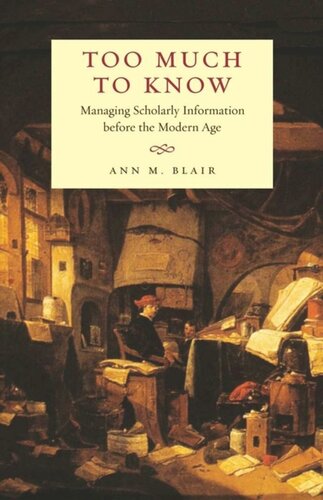

Most ebook files are in PDF format, so you can easily read them using various software such as Foxit Reader or directly on the Google Chrome browser.
Some ebook files are released by publishers in other formats such as .awz, .mobi, .epub, .fb2, etc. You may need to install specific software to read these formats on mobile/PC, such as Calibre.
Please read the tutorial at this link: https://ebookbell.com/faq
We offer FREE conversion to the popular formats you request; however, this may take some time. Therefore, right after payment, please email us, and we will try to provide the service as quickly as possible.
For some exceptional file formats or broken links (if any), please refrain from opening any disputes. Instead, email us first, and we will try to assist within a maximum of 6 hours.
EbookBell Team

5.0
98 reviewsThe flood of information brought to us by advancing technology is often accompanied by a distressing sense of “information overload,” yet this experience is not unique to modern times. In fact, says Ann M. Blair in this intriguing book, the invention of the printing press and the ensuing abundance of books provoked sixteenth- and seventeenth-century European scholars to register complaints very similar to our own. Blair examines methods of information management in ancient and medieval Europe as well as the Islamic world and China, then focuses particular attention on the organization, composition, and reception of Latin reference books in print in early modern Europe. She explores in detail the sophisticated and sometimes idiosyncratic techniques that scholars and readers developed in an era of new technology and exploding information.